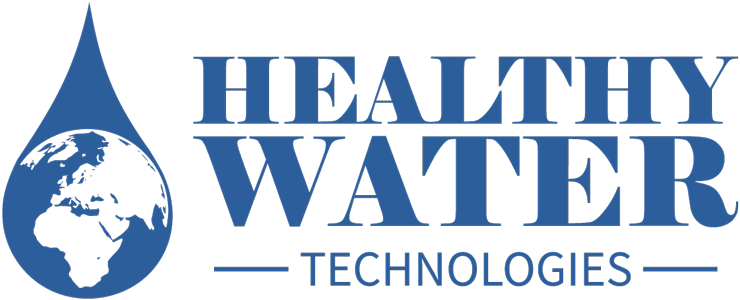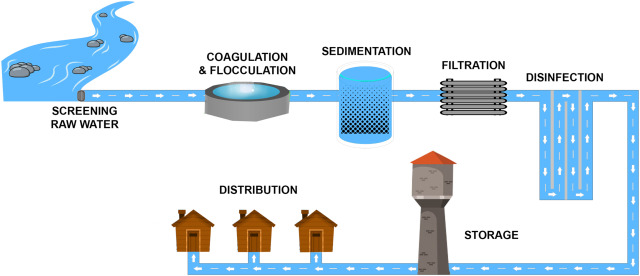Water Purification & Treatment: Clean, Safe, and Healthy Water for Your Home
Access to clean and safe water is essential for a healthy life. Water purification and treatment systems help remove contaminants, improve taste, and ensure your household has high-quality water for drinking, cooking, and everyday use. Whether dealing with hard water, chlorine, bacteria, or other impurities, investing in a proper water treatment system can make a significant difference in your home’s water quality.
In this guide, we will explore the importance of water purification, different treatment methods, benefits, and how to choose the best system for your needs.
Why Water Purification & Treatment is Important
Removes Contaminants
Tap water often contains impurities such as chlorine, lead, pesticides, bacteria, and heavy metals. Water treatment systems help eliminate these contaminants, making water safe for consumption.
Improves Taste and Odor
Unfiltered water may have an unpleasant taste or smell due to chemicals and minerals. Filtration enhances the overall quality and freshness of drinking water.
Prevents Health Issues
Consuming contaminated water can lead to serious health problems, including digestive issues, skin irritation, and long-term illnesses. Purification systems ensure safe water for your family.
Extends Appliance Lifespan
Hard water with high mineral content can cause scale buildup in pipes, faucets, and appliances like water heaters and dishwashers. Water softeners and filtration systems help prevent damage and improve efficiency.
Environmentally Friendly
Using a home filtration system reduces reliance on bottled water, cutting down on plastic waste and promoting sustainable living.
Types of Water Purification & Treatment Systems
Choosing the right water purification system depends on the contaminants in your water and your household needs.
Activated Carbon Filters
- Removes chlorine, bad odors, and some organic contaminants.
- Commonly used in pitcher filters, faucet filters, and under-sink systems.
Reverse Osmosis (RO) Systems
- Uses a semipermeable membrane to remove heavy metals, bacteria, and dissolved solids.
- Ideal for purifying drinking water at home.
UV Water Purification
- Uses ultraviolet light to kill bacteria, viruses, and microorganisms.
- Often combined with other filtration methods for complete protection.
Water Softeners
- Removes calcium and magnesium that cause hard water problems.
- Prevents scale buildup in plumbing and appliances.
Whole-House Filtration Systems
- Treats all water entering the home, providing clean water for drinking, bathing, and cooking.
- Can include multiple filtration stages for thorough purification.
How to Choose the Best Water Purification System
Test Your Water Quality
- Get a professional water test or use a home testing kit to identify contaminants.
- Check for pH levels, chlorine, lead, bacteria, and other pollutants.
Determine Your Needs
- For drinking water: Use a reverse osmosis or activated carbon filter.
- For bacteria concerns: Consider UV purification.
- For hard water: Install a water softener.
- For whole-home protection: Choose a multi-stage filtration system.
Consider Maintenance and Costs
- Look at the cost of replacement filters and maintenance requirements.
- Some systems require frequent filter changes, while others need periodic servicing.
Installation and Maintenance Tips
Installation Considerations
- Some filtration systems, like pitchers or faucet filters, are easy to install.
- Whole-house systems and reverse osmosis units may require professional installation.
Regular Maintenance is Essential
- Replace filters as recommended by the manufacturer.
- Clean storage tanks and pipes to prevent bacteria buildup.
- Monitor water pressure and flow rate to ensure optimal performance.
Benefits of Installing a Home Water Purification System
Healthier Drinking Water
- Eliminates harmful chemicals and bacteria.
- Provides clean and fresh-tasting water for the whole family.
Cost Savings Over Time
- Reduces reliance on bottled water.
- Prevents plumbing and appliance damage caused by hard water buildup.
Eco-Friendly Solution
- Decreases plastic waste from bottled water consumption.
- Reduces chemical discharge into the environment.
Convenience and Accessibility
- No need to buy and store bottled water.
- Instant access to purified water at home.
DIY vs. Professional Installation
DIY Installation
- Suitable for simple systems like faucet filters and pitchers.
- Cost-effective but may not be ideal for complex filtration needs.
Professional Installation
- Recommended for reverse osmosis, whole-house systems, and UV purifiers.
- Ensures proper setup and long-term efficiency.
Common Mistakes to Avoid
Ignoring Water Testing
- Failing to test water before choosing a filtration system can lead to ineffective purification.
Choosing the Wrong Filter
- Not all filters remove the same contaminants. Select one based on specific water quality concerns.
Skipping Regular Maintenance
- Dirty or expired filters reduce effectiveness and may lead to contamination.
Overlooking Installation Requirements
- Some systems need professional installation, while others are easy to set up independently.
Conclusion
Investing in a reliable water purification and treatment system ensures your home has access to clean, safe, and great-tasting water. Whether you need to remove harmful contaminants, improve taste, or soften hard water, there are various solutions available to fit your needs and budget.
By choosing the right system, performing regular maintenance, and staying informed about your water quality, you can enjoy a healthier and more sustainable water supply for years to come.

